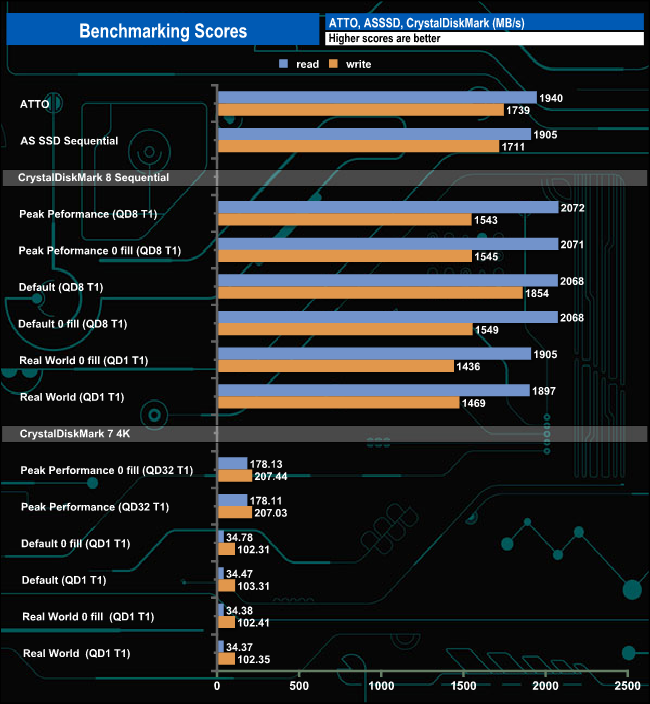Out of the box, the drive is factory formatted as exFAT but to run some of our tests we re-formatted it as NTFS. To test the drive at its full USB 3.2 Gen2 x 2 speed we used a Gigabyte GC-USB 3.2 GEN2X2 (rev1.1) expansion card. Many thanks to Gigabyte for supplying us with the card.
CrystalDiskMark is a useful benchmark to measure the theoretical performance levels of hard drives and SSDs. We are using V7.
The ATTO Disk Benchmark performance measurement tool is compatible with Microsoft Windows. Measure your storage systems performance with various transfer sizes and test lengths for reads and writes. Several options are available to customize your performance measurement including queue depth, overlapped I/O and even a comparison mode with the option to run continuously.Use ATTO Disk Benchmark to test any manufacturer's RAID controllers, storage controllers, host adapters, hard drives and SSD drives and notice that ATTO products will consistently provide the highest level of performance to your storage.
AS SSD is a great free tool designed just for benching Solid State Drives. It performs an array of sequential read and write tests, as well as random read-and-write tests with sequential access times over a portion of the drive. AS SSD includes a sub suite of benchmarks with various file pattern algorithms but this is difficult in trying to judge accurate performance figures.
Crucial rate the X10 Pro's performance as up to 2,100MB/s for reads and up to 2,000MB/s for writes. Using the ATTO, AS SSD and CrystalDiskMark 8 benchmarks we couldn't quite hit those maximum official figures.
The best figures we saw for both reads and writes came from the CrystalDiskMark 8 test runs. The best-read figure of 2,072MB/s came when testing the drive using the Peak Performance profile (QD8 T1) while the fastest write performance (1,854MB/s) came from the default test (QD8 T1).
 KitGuru KitGuru.net – Tech News | Hardware News | Hardware Reviews | IOS | Mobile | Gaming | Graphics Cards
KitGuru KitGuru.net – Tech News | Hardware News | Hardware Reviews | IOS | Mobile | Gaming | Graphics Cards



